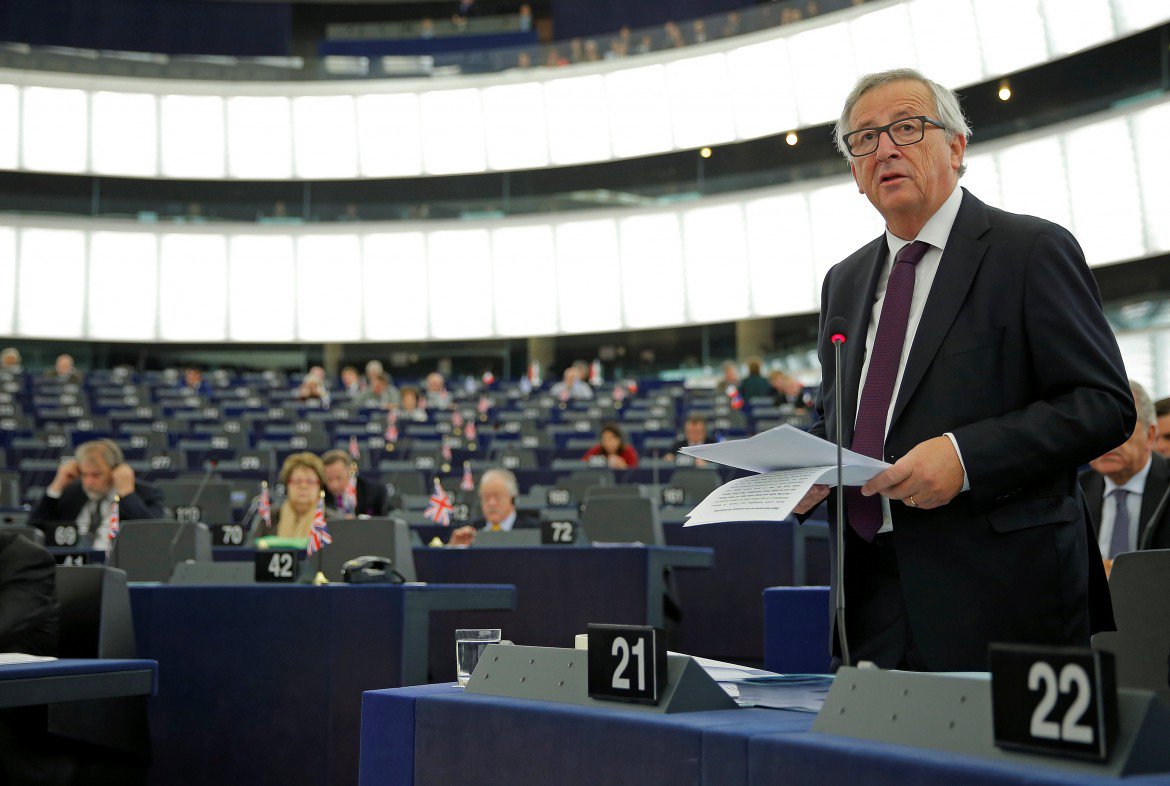Rome-Bruxelles
New Juncker-Renzi round. But three parties debate over the accounts
The EU Commision President under pressure from the hawks of rigor. The opinion on the Italian maneuver will be issued on Nov. 16th, but the final outcome will be known after the referendum

As expected, the day after the outburst of the European Commission President Juncker, everybody strive to lower the level of confrontation. But the tension runs under the skin and eventually it bursts again despite diplomatic efforts. Renzi, with the high risk referendum breathing on his neck, restarts the confrontation: “The time when Italy just took orders and diktats is over and will not return. We are not the ATMs of Eastern Europe which demand solidarity only when there is something to be taken and never when there is the need to give back.” Juncker replied in the same tone: “I do not preside over a gang of technocrats and bureaucrats but a commission made up of politicians and in politics, reality must be observed.”
In Juncker’s exasperation, there is an evident irritation for being targeted by Renzi as a champion of rigor just as the Berlin hawks besiege him to put into temporary receivership the Commission of the bail-out Fund for the flexibility granted to Italy. But the clash reveals how the path to the Italian budget law is much more difficult and bumpy than expected.
In Brussels, completely different tones are being used, however the substance of the positions remain unchanged. After meeting with Commissioner for the Economy Moscovici, Minister Padoan ensures that the conversation “has been constructive” and that “the negotiations are ongoing.” Today, the Commission will announce its growth forecasts: Padoan is convinced that “there may be slight differences but not significant deviations” with respect to the accounts of the Italian government. In fact, today’s passage has not been considered an obstacle for a while, given the choice to postpone the decision until after the referendum.
For the rest, Padoan confirms point by point the Italian stance. Juncker “quoted figures that did not add up, and then he corrected himself.” The plausibility of the forecast of GDP increase of 1 per cent next year “was not denied by anyone in the hearings of the Budget Committee.” Debt “will begin to fall next year.” Italy has proven, documents in hand, that it is spending “much more and much faster” on migrants than the rest of Europe. And anyway in Brussels “there is no annoyance against Italy.” Vice President of the Commission Dombrovskis throws water on the fire: “On Nov. 16th, we will present our opinion, but on previous occasions the costs of earthquakes have been considered an exceptional one-off.”
The official opinion of the Commission, to which Dombrovskis alludes, however important, will not be the last word. That will come only after the referendum, which is part of a complex European game that not only has Italy’s case at stakes.
The hawks in Berlin (and beyond), the Commission looking for a point of mediation and Italy with its application for a substantial excess of the constraints represent three distinct and conflicting positions. The results of this tripartite confrontation will certainly be influenced by the strength that Matteo Renzi will prove to have, or not to have, in his country. In any case, only after resolving the unknown factor represented by that vote, the EU will make a decision that will be entirely political, even if disguised as a technical matter.
In Rome, meanwhile, the government is preparing to submit the tax decree related to the budget law to a vote of confidence in Parliament. The Budget and Finance Committees of the House will proceed frantically in order to debate the vote of confidence on Thursday, vote on Friday and then forward the text to the Senate this week, if possible.
Originally published at http://ilmanifesto.info/juncker-renzi-nuovo-round-ma-il-conflitto-sui-conti-e-a-tre/ on 2016-11-09
